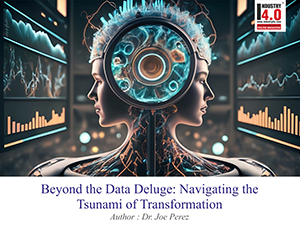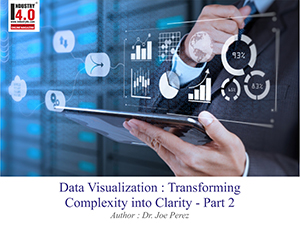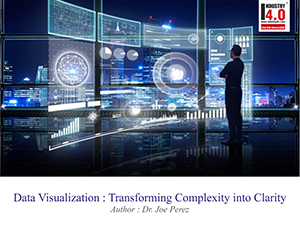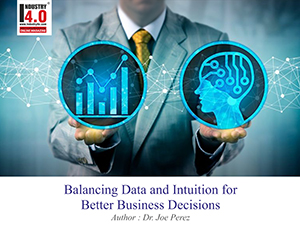Navigating the Digital Landscape: Lessons from the Inca’s Road Network
Travel back in history to the ancient Inca Empire, where a complex system of roads called the Qhapaq Ñan – also known as “The Royal Road” in Quechua – intersected the terrain. This remarkable engineering achievement, built without the use of wheels or draft animals, served as the backbone for communication, commerce, and military operations throughout the vast empire. Similar to how the Incas meticulously coordinated and cooperated to construct this essential infrastructure, successful data governance in today’s digital age demands meticulous planning and collaboration to guarantee smooth information exchange.
In this article, we’ll explore three essential components of nurturing a successful data governance environment: the impactful role of mentorship, developing resilience to tackle data analytics challenges, and enhancing communication tactics for effective stakeholder involvement. Join us as we dive into this enlightening journey, drawing inspiration from the marvels of the ancient Inca road network.
The Mentor’s Role in Remote Data Governance: Lighting the Way to Success.
The rise of remote work in recent years has brought forth a new set of challenges for data governance professionals, challenges that have yet to be fully explored. However, there is a solution in the form of experienced mentors who can light the way. These mentors possess a wealth of knowledge and expertise that can empower you to confidently and adeptly navigate this virtual landscape. They provide invaluable best practices, encompassing data quality and security management, as well as facilitating seamless collaboration across teams.
Vincent J. Girardi once wisely said, “A mentor is someone who sees more in you than you see in yourself and helps you to find the God-given abilities within you.” This quote beautifully captures the profound impact of mentorship, not only in teaching practical skills but also in fostering self-confidence and unleashing one’s true potential, particularly in the challenging field of remote data governance.
With a mentor’s guidance, you’ll receive valuable advice on how to navigate the specific challenges of managing virtual data. They will provide strategies for utilizing technology platforms effectively, ensuring data integrity within dispersed teams, and promoting effective communication despite geographical barriers. Picture yourself encountering difficulties in maintaining data consistency while working remotely. Your mentor might suggest implementing rigorous validation procedures, utilizing real-time monitoring tools, and establishing clear communication channels to quickly resolve any discrepancies – a comprehensive strategy to protecting data quality and alignment.
In the constantly changing digital landscape, a mentor assumes the role of a dependable guide, equipping you with the necessary tools to flourish amidst the intricate nature of remote data governance.
The Resilient Analyst: Overcoming Challenges in Data Analytics Projects
Just like a sturdy foundation provides stability to a building during storms, a robust data governance framework establishes the necessary groundwork for successful data analytics projects. It ensures the precision, security, and availability of data. With this strong foundation in place, let’s now explore strategies to cultivate resilience – a crucial quality that enables you to navigate even the most challenging analytics situations and emerge as a winner.
According to a 2022 Alation State of Data Culture Report, organizations that have a well-established data culture are significantly more likely, by 90%, to achieve or surpass their revenue objectives in the previous twelve months. This significant statistic emphasizes the crucial importance of a data-driven atmosphere in promoting resilience. With a strong data governance framework in place, analysts can concentrate on extracting valuable insights instead of dealing with data discrepancies, thus laying the foundation for success.
At the core of resilience lies a growth mindset, where challenges are embraced as opportunities for learning and development. How do you best meet those challenges? Maintain a positive attitude, be flexible, and view setbacks as valuable learning opportunities. Actively seek feedback and support from colleagues, mentors, and stakeholders to tap into their diverse perspectives and find creative solutions.
Imagine this scenario: In the midst of a complex analytics project, you encounter unexpected data inconsistencies. Instead of trying to overcome this challenge by yourself, you proactively seek advice from your team and mentors. Through collaborative brainstorming sessions, you are able to pinpoint alternative data sources and analysis methods, effectively resolving the issue at hand. Furthermore, you maintain open communication with stakeholders, promoting transparency and suggesting proactive strategies to mitigate potential risks. By tapping into the collective expertise and support of your colleagues, you are able to tackle the project’s obstacles with resilience, ultimately achieving success.
Resilience and a collaborative spirit serve as the guiding principles that light the way to success in the ever-changing arena of data analytics.
Refining Your Data Governance Communication Plan: A Guide to Continuous Improvement
Effective data governance relies heavily on clear and consistent communication, as it serves as the foundation for fostering alignment, transparency, and engagement among stakeholders. Nevertheless, developing an efficient communication strategy is an ongoing process that demands constant refinement and adaptation to guarantee long-term success.
The importance of customizing communication for optimal impact is not a new concept. In fact, it’s significance can be traced back to historical events. For instance, the Edict of Nantes, issued by King Henry IV of France in 1598, aimed to provide religious tolerance to Huguenots (French Protestants). However, the initial communication approach failed due to the use of complex legal language and a lack of clear dissemination channels, resulting in confusion and doubt among the Huguenots. To address this issue, King Henry implemented a communication improvement campaign by simplifying language, sending representatives to explain the Edict directly to Huguenot communities, and collaborating with playwrights to create pro-tolerance theatrical productions. These initiatives significantly enhanced understanding and acceptance, underscoring the effectiveness of iterative communication strategies.
In order to improve your data governance communication plan and prevent the challenges initially faced by Henry IV with the Edict of Nantes, it is crucial to continuously assess and improve your approach. Keep track of key metrics such as open rates, attendance rates, satisfaction rates, and engagement rates to determine the effectiveness of your efforts. Additionally, gather feedback directly from your audience through surveys, interviews, or focus groups to gain valuable insights into their preferences, expectations, and areas that require enhancement. By utilizing these perspectives, you can refine your strategies, tailor your messages, and optimize communication platforms to achieve maximum impact. This will undoubtedly contribute to the satisfaction of your Huguenots!
Consider the scenario where a new data governance communication plan is being implemented to enhance transparency and engagement among stakeholders through webinars. After monitoring various metrics and gathering feedback from stakeholders, it becomes apparent that webinar attendance rates have decreased and engagement with email newsletters is lower than anticipated. In response, open and constructive dialogues are initiated to gain insights into the challenges and preferences of the audience. Incorporating their input, the strategy is updated to include interactive workshops, personalized email updates, and targeted Q&A sessions. This iterative approach yields a significant increase in engagement and satisfaction, thereby confirming the success of continuous improvement efforts.
To foster meaningful dialogue and collaboration among stakeholders, it is imperative to prioritize continuous evaluation and refinement in the dynamic landscape of data governance. These essential pillars ensure that the process remains effective and responsive to the evolving needs of all stakeholders.
Conclusion:
In the same way that the Inca road network facilitated the success of their expansive empire, a well-defined data governance strategy empowers organizations to thrive in the digital era. By fostering a culture that values data literacy and collaboration, businesses can effectively navigate the complexities of data management with resilience and efficiency. Remember, as Vincent J. Girardi aptly stated, ” A mentor is someone who sees more in you than you see in yourself and helps you to find the God-given abilities within you.” Mentorship programs play a vital role in developing the next generation of data governance professionals, equipping them with the necessary skills and knowledge to navigate the ever-changing data landscape.
Incorporating the approaches highlighted in this article – including leveraging mentorship, nurturing resilience, and consistently refining communication strategies – will empower you to create a robust data governance framework that promotes trust, transparency, and organizational success. Embrace the lessons from the ancient Inca road network, and pave the way for your digital initiatives to flourish.
“Bringing Data to Life and Life to Data”

Dr. Joe Perez,
Team Lead / Senior Systems Analyst,
NC Department of Health and Human Services
Dr. Joe Perez ( Dr.Joe ) is also the Chief Technology Officer – CogniMind
To book Dr. Joe Perez for your speaking engagement please click here
Dr. Joe Perez was selected as the 2023 Gartner Peer Community Ambassador of the Year.
Dr. Joe Perez is a truly exceptional professional who has left an indelible mark on the IT, health and human services, and higher education sectors. His journey began in the field of education, where he laid the foundation for his career. With advanced degrees in education and a doctorate that included a double minor in computers and theology, Joe embarked on a path that ultimately led him to the dynamic world of data-driven Information Technology.
In the early 1990s, he transitioned into IT, starting as a Computer Consultant at NC State University. Over the years, his dedication and expertise led to a series of well-deserved promotions, culminating in his role as Business Intelligence Specialist that capped his 25 successful years at NC State. Not one to rest on his laurels, Dr. Perez embarked on a new challenge in the fall of 2017, when he was recruited to take on the role of Senior Business Analyst at the NC Department of Health & Human Services (DHHS). His impressive journey continued with promotions to Senior Systems Analyst and Team Leader, showcasing his versatility and leadership capabilities.
In addition to his full-time responsibilities at DHHS, Joe assumed the role of fractional Chief Technology Officer at a North Carolina corporation in October 2020. A top-ranked published author with over 17,000 followers on LinkedIn and numerous professional certifications, he is a highly sought-after international keynote speaker, a recognized expert in data analytics and visualization, and a specialist in efficiency and process improvement.
Dr. Perez’s contributions have not gone unnoticed. He is a recipient of the IOT Industry Insights 2021 Thought Leader of the Year award and has been acknowledged as a LinkedIn Top Voice in multiple topics. He holds memberships in prestigious Thought Leader communities at Gartner, Coruzant Technologies, DataManagementU, Engatica, the Global AI Hub, and Thinkers360 (where he achieved overall Top 20 Thought Leader 2023 ranking in both Analytics and Big Data). His reach extends to more than twenty countries worldwide, where he impacts thousands through his speaking engagements.
Beyond his professional achievements, Joe’s passion for teaching remains undiminished. Whether as a speaker, workshop facilitator, podcast guest, conference emcee, or team leader, he continually inspires individuals to strive for excellence. He treasures his time with his family and is a gifted musician, singer, pianist, and composer. Joe also dedicates his skills as a speaker, interpreter, and music director to his church’s Hispanic ministry. He manages the publication of a widely recognized monthly military newsletter, The Patriot News, and is deeply committed to his community.
To maintain a balanced life, Perez is a regular at the gym, and he finds relaxation in watching Star Trek reruns. He lives by the philosophy that innovation is the key to progress, and he approaches each day with boundless energy and an unwavering commitment to excellence. His journey is a testament to the remarkable achievements of a truly exceptional individual.
Dr. Joe Perez is Accorded with the following Honors & Awards :
https://www.linkedin.com/in/jw
Dr. Joe Perez is Bestowed with the following Licences,Certifications & Badge:
https://www.linkedin.com/in/jw
https://www.thinkers360.com/tl
Dr.Joe Perez is Voluentering in the following International Industry Associations & Institutions :
https://www.linkedin.com/in/jw
Dr.Joe Perez can be contacted at :
E-mail | LinkedIn | Web | Sessionize | FaceBook | Twitter | YouTube
Also read Dr.Joe Perez‘s earlier article:


















